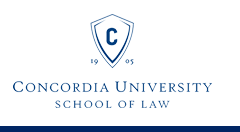Document Type
Essay
Abstract
Top-two primaries pose significant constitutional issues for political parties, but primary system selection is also a significant policy question for each state. Primary elections have served as a filter for candidates to enter the general election; however, primaries are predominantly party functions. Although the process varies from state-to-state and is regulated by individual state legislatures, primary elections allow voters of a particular party to nominate the candidate they think best represents them against other parties in the general election. To combat partisan politics, Washington and California have grappled with election reform by adopting a "top-two" primary system. This version of an open primary, later donned the “Jungle Primary,” created a scheme in which all candidates would face off in one primary election. The first and second place primary winners would move on to the general election, regardless if there was party balance. This system set out to do what a traditional primary supposedly couldn’t-- find moderacy. Since the adoption of this primary system, it has been challenged on constitutional grounds at both state and federal levels. However in seemingly divergent, inconsistent decisions, the U.S. Supreme Court appears to lack a unified approach to addressing whether open or top-two primaries have actually achieved that goal. This article argues that new legal challenges are needed in order to achieve unity, in an effort to return to the successful, clearly constitutional, closed primary systems that adequately represent the two-party democratic republic of the United States.
CU Commons Citation
Larson, Taylor and Duden, Joshua A.
(2019)
"Vying to be King of the Jungle: Where Top-Two Primaries Fall Short,"
Concordia Law Review: Vol. 4:
No.
1, Article 7.
Available at:
https://digitalcommons.csp.edu/clr/vol4/iss1/7

